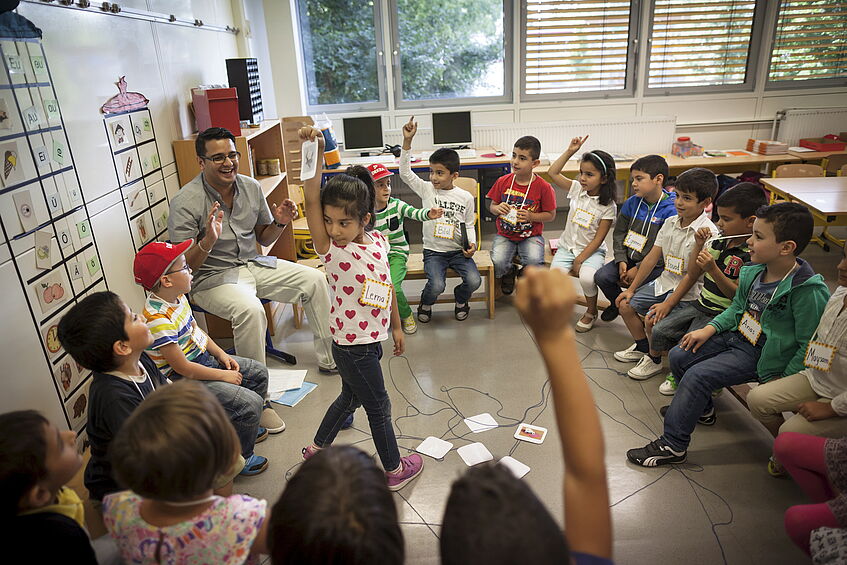The Effects of Islamic Religious Education in Austria

Islamic religious education in Austria is part of the general educational mandate of public schools in that it seeks to enable Muslim pupils to develop a religious orientation for confronting their origin and the Islamic tradition and for encouraging people of other religious or ideological orientations to meet them with respect and tolerance.
In view of this central importance of Islamic religious education for the integration of Muslim people into Austrian society, the project "The Effects of Islamic Religious Education in Austria" aims to investigate the extent to which Islamic religious education in Austria's public schools achieves its educational goals.
The planned research project aims to evaluate Islamic religious education in Austria on the basis of results obtained through quantitative research. The aim is to compare the knowledge and attitudes towards Islam (and other religions) of the 9th graders, who attend Islamic religious education classes with the knowledge and attitudes of the students who opted out of Islamic religious education classes.
The effects of Islamic religious education can then be determined by comparing the results of the study and control groups. This is particularly possible because the survey also includes lesson-related, personal and social indicators that can be used to determine the extent to which variances between the study and control groups are moderated by Islamic religious instruction or are caused by other factors.
The project is designed as a cross-sectional study with approximately 1,000 subjects per group. The following research questions arise for a broad and representative study of the effects of Islamic religious education:
- What do students attending Islamic religious education classes in Austria know about Islam (and other religions) and what is their attitude towards Islam (and other religions)?
- How are this knowledge and these attitudes determined by what happens in class on the one hand and by factors external to the lesson on the other, namely i) the personal resources of the students, ii) their social resources, iii) their religiosity and iv) their subjective assessment of their living situation?
- How do pupils who attend Islamic religious education classes in Austria differ in their religious knowledge and attitudes from the religious knowledge and religious attitudes of pupils who do not attend Islamic religious education classes?
The aim is to use the knowledge and attitudes collected by means of the questionnaire to determine the results of Islamic religious education in Austria, which should serve as a basis for its further development.
